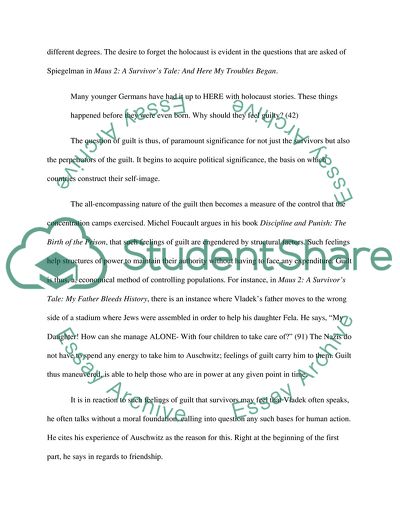Cite this document
(Guilt and Representations of the Holocaust in Art Spiegelmans Maus Essay Example | Topics and Well Written Essays - 1250 words - 3, n.d.)
Guilt and Representations of the Holocaust in Art Spiegelmans Maus Essay Example | Topics and Well Written Essays - 1250 words - 3. https://studentshare.org/social-science/1835674-research-essay
Guilt and Representations of the Holocaust in Art Spiegelmans Maus Essay Example | Topics and Well Written Essays - 1250 words - 3. https://studentshare.org/social-science/1835674-research-essay
(Guilt and Representations of the Holocaust in Art Spiegelmans Maus Essay Example | Topics and Well Written Essays - 1250 Words - 3)
Guilt and Representations of the Holocaust in Art Spiegelmans Maus Essay Example | Topics and Well Written Essays - 1250 Words - 3. https://studentshare.org/social-science/1835674-research-essay.
Guilt and Representations of the Holocaust in Art Spiegelmans Maus Essay Example | Topics and Well Written Essays - 1250 Words - 3. https://studentshare.org/social-science/1835674-research-essay.
“Guilt and Representations of the Holocaust in Art Spiegelmans Maus Essay Example | Topics and Well Written Essays - 1250 Words - 3”. https://studentshare.org/social-science/1835674-research-essay.


